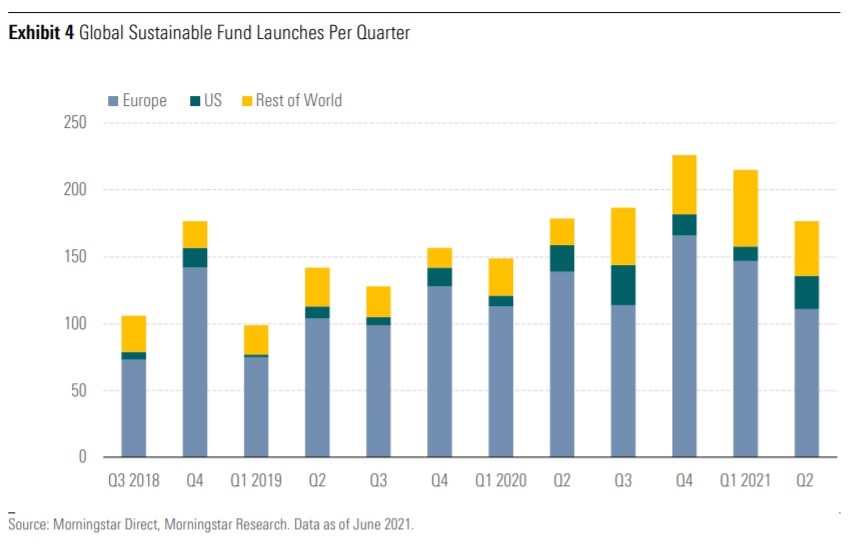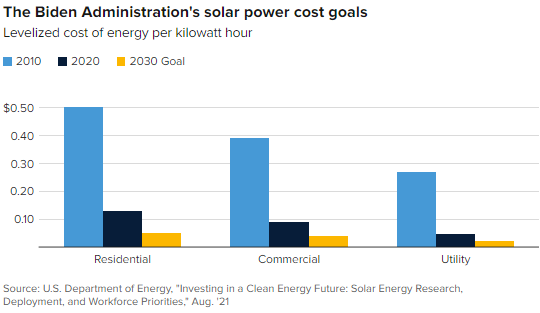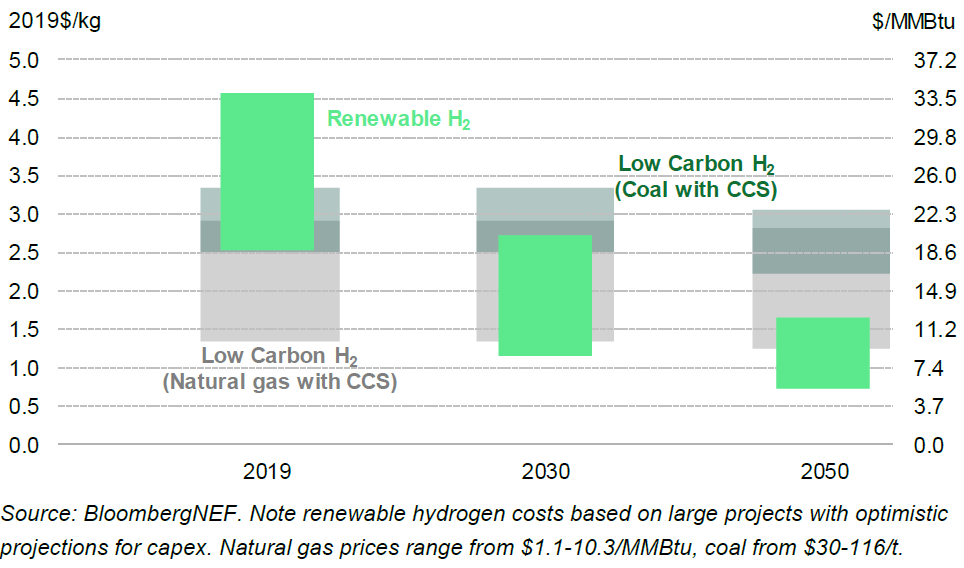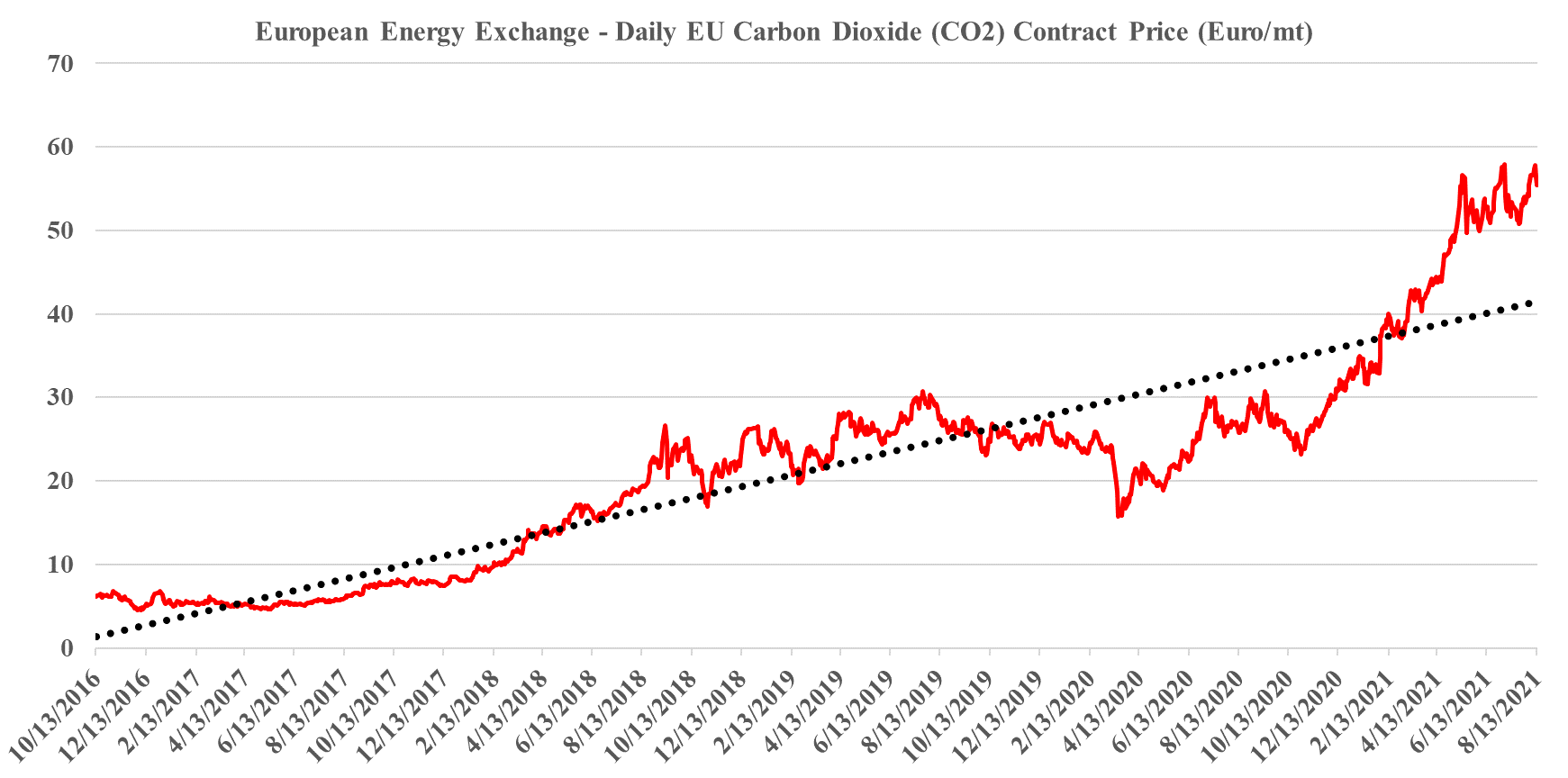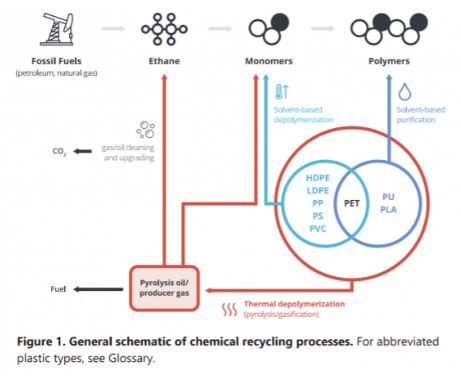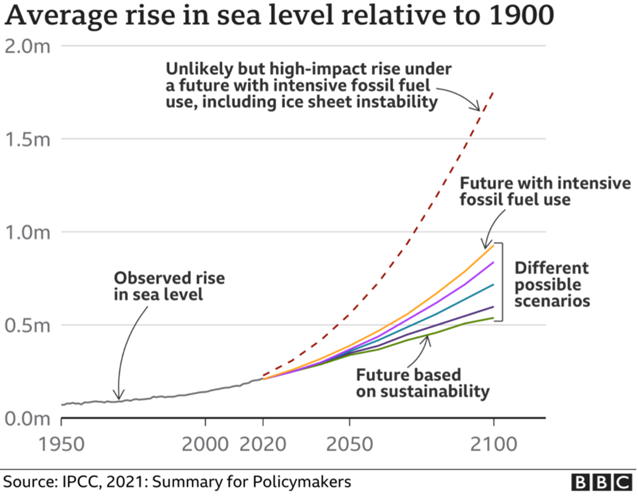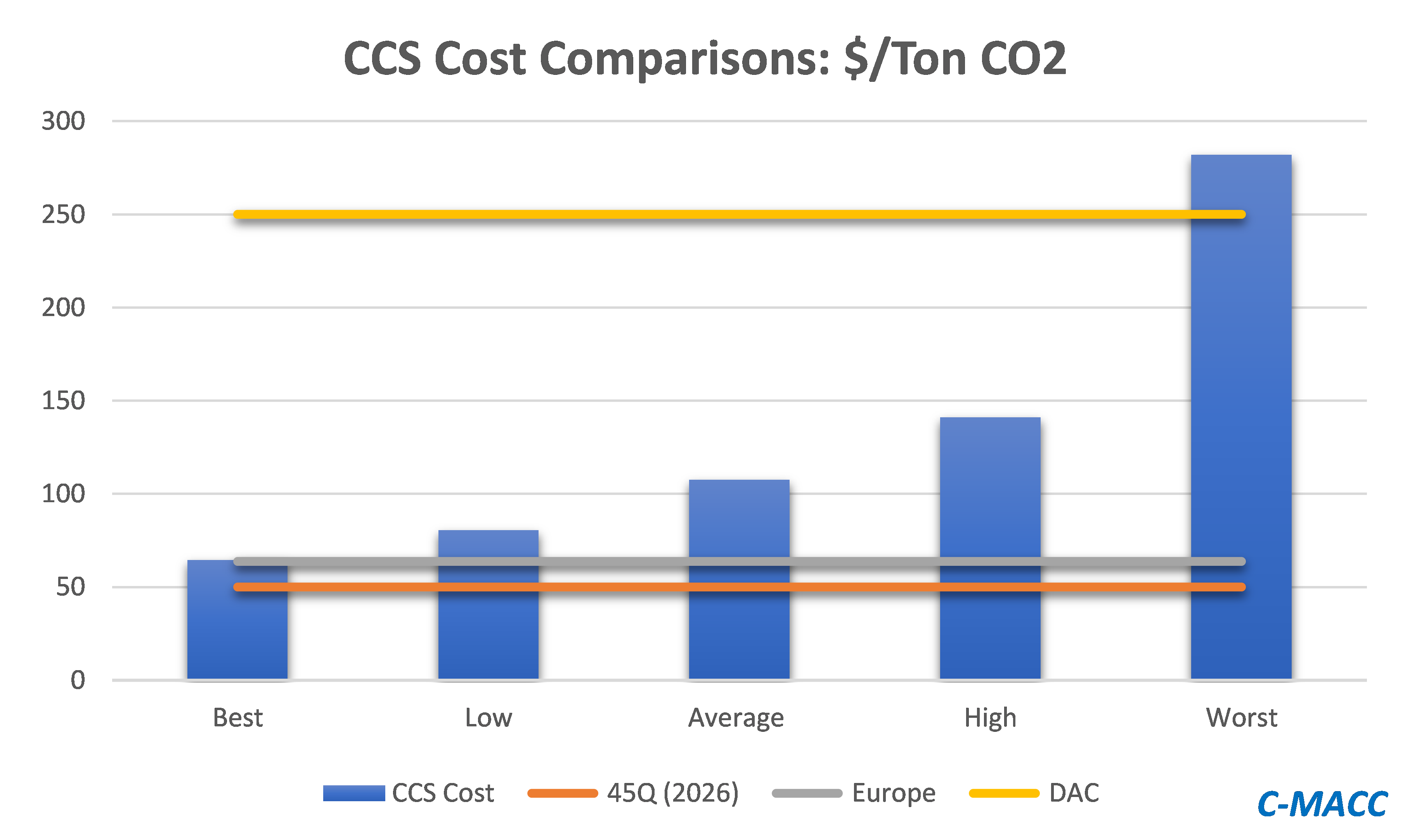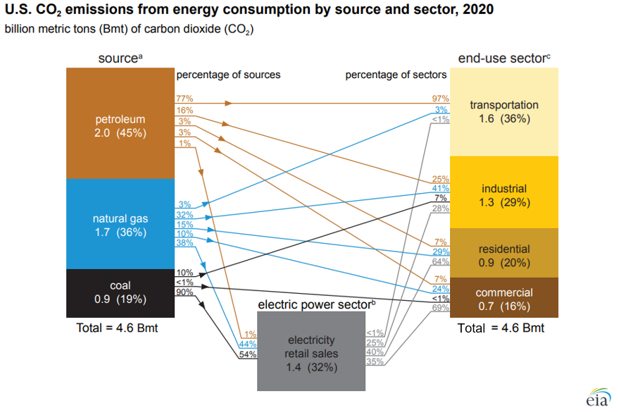There is a significant increase in the number of commentators taking a swing at ESG investing and suggesting that it is neither effective nor in the best interest of investors as it likely puts them at risk of underperformance. The performance piece has largely been a moot point until now as the funds flowing into the ESG space have been high enough to ensure outperformance from a simple supply/demand perspective, see chart below. However, should the flow of funds slow and investments be judged on their own merits many fund managers are going to find that they own some egregiously expensive stocks with fundamentals that do not support the valuation. If this then leads to a rotation out of a sub-set of names, the future outperformance of the class is far from guaranteed.
Is ESG Investing Making A Difference?
Aug 24, 2021 12:57:09 PM / by Graham Copley posted in ESG, Climate Change, Sustainability, ESG Investing, ESG funds
It's Hard To Bet On Deflation When You Are Dependent On Commodity Pricing
Aug 19, 2021 11:57:02 AM / by Graham Copley posted in ESG, Hydrogen, Climate Change, Sustainability, Renewable Power, Raw Materials, solar, copper, silver, wind, Lithium, solar energy, steel, basic polymers, semiconductors, renewable power goals, aluminum, EV batteries, rare earths
We are back on one of our pet topics today which is the reasonableness around some of the assumptions around the future cost of renewable power. We reference, work done by the US Department of Energy in the Exhibit below, and see two potential pitfalls with the assumptions around continuous improvement in solar, wind, and hydrogen costs, although there is a slight twist for hydrogen. The first is around the dynamics of learning curves. As the exhibit shows, in the early stages of any product development, there are huge leaps in cost improvements, driven by scale, better know-how, more efficient manufacturing, and in the case of solar power, both better processes for installation and some technology improvements. However, as you drive costs lower, the cost of raw materials becomes a much larger component of overall costs, and your ability to lower costs further can be overwhelmed by moves in material costs. Any inability to pass on the costs will result in economics that do not justify additional capital and you find yourselves in a commodity cycle. This is something that we have seen in basic polymers for decades, and no buyer of polyethylene today can claim that they are benefiting from a learning curve improvement. Closer to home for solar, we are seeing the same issue today in semiconductors – not enough margin to invest as everyone has been trying to push costs lower. The expectation in the DOE study and highlighted in the CNBC take on the study below is that annual solar installations in the US need to rise by 3-4X to meet some of the renewable power goals the Biden Administration is looking for by 2030, while similar growth is expected in other markets – the solar panel and other component makers have to be making good money to achieve this.
Everyone Wants A Hydrogen Project: Some Strategies Less Risky Than Others
Aug 18, 2021 12:20:35 PM / by Graham Copley posted in ESG, Hydrogen, Climate Change, Green Hydrogen, CCS, Blue Hydrogen, Renewable Power, Emissions, Ammonia, natural gas, Neom
It is hard to ignore the number of headlines on hydrogen initiatives, today, highlighted in our ESG and climate report, as well as the acceleration in project announcements over the last several months. In the 80s in the UK, it was trendy to drive a VW Golf GTI – everyone had to have one – hydrogen has the same feel today – everyone has to have a project. The projects vary and fall into a handful of categories:
Will The Climate Frenzy Leave Plastic Waste Ignored For Now?
Aug 13, 2021 11:46:37 AM / by Graham Copley posted in ESG, Climate Change, Plastic Waste, Plastics, CCS, CO2, Emissions, Carbon Price, carbon abatement, climate, IPCC, Plastics producers, COP26, virgin plastic, plastic tax
As we sift through the positioning for the upcoming COP26 meeting and the attention focusing report from the IPCC this week, it is a reasonable question to ask what this means for the plastic waste issue. If governments, lobbyists, and activists are likely to be more focused on climate change action over the next few years, which seems to be a reasonable conclusion, will there be the bandwidth for plastic waste? The plastic waste issue is less open to interpretation than the climate change issue and is a visible problem for all, but if governments need to prioritize where they spend their incremental dollar, and/or where they provide incentives of penalties, the climate is going to be pushed to the front of the line in our view. Plastics producers will have to deal with emissions, like any other industrial user of power and heat. The risk is that local governments, looking for revenue to support climate initiatives see taxing virgin plastic (or unrecycled plastic) as a way to both push plastic waste initiatives forward and raise revenue. Adding a plastic tax in the US to the superfund proposal in the infrastructure bill would be hitting the chemicals industry from two sides and would give bodies like the ACC far more grounds for pushback. For more on the IPCC analysis see our ESG & Climate Change report from this week.
Chemical Recycling Is Good, But So Is Blue Hydrogen
Aug 12, 2021 2:02:17 PM / by Graham Copley posted in Hydrogen, Climate Change, Plastics, Methane, CCS, Blue Hydrogen, CO2, carbon abatement, natural gas, chemical recycling, NGL, plastics industry, methane emissions, CO2 footprint
We believe that the plastics industry is right to get as much state backing for chemical recycling as it can – see Louisiana headline and diagram below. While chemical recycling is not as neat as mechanical recycling, it has far more chance of dealing with the core issue, which is the disposal of plastic waste – see report linked here. Our support for chemical recycling stems from the view that it will be very hard to get the behavioral change needed to ramp up mechanical recycling quickly and to a level that will impact waste.
The UN Report Is Alarming - Right or Wrong, We Cannot Ignore It
Aug 10, 2021 12:30:31 PM / by Graham Copley posted in ESG, Climate Change, Emissions, climate, UN, United Nations, IPCC, abatement, Sea Levels
The IPCC (UN) report is all over every news outlet and its content and the ramifications of the analysis will be the core of our ESG and Climate piece tomorrow – in the Exhibit below we show a chart that was republished by the BBC which looks at projections around sea level increases. While the UN report has compelling academic and government backing and is certainly the most coordinated analysis on climate change, it is still littered with “most likely” and “more likely” comments, suggesting that the projections are still shrouded in uncertainty. There is a very good chart that shows “observed” climate change data over the last 50 years, and the ranges around the primary causality (human versus natural) conclusions are significant, suggesting that different models are telling very different stories, some less scary than others.
Carbon Offsets: Direct Air Capture Is Not The Only Option
Jul 28, 2021 12:55:50 PM / by Graham Copley posted in ESG, Carbon Capture, Climate Change, Sustainability, CCS, CO2, Emissions, carbon abatement, carbon values, carbon offsets, direct air capture, methane emission, DAC
There has been a lot of press over the last couple of months around carbon offsets – not least because of Mark Carney’s efforts to legitimize the idea. Mr. Carney’s focus is to create a robust trading platform for the buying and selling of legitimate offsets so that a carbon market can operate efficiently. He believes that without accurate and realistic carbon values, and the ability to buy and sell them, the capital markets around emission reduction will be inefficient and that less money will be attracted into the area. On this, he is probably correct, but in our view, the carbon offset markets have a long way to go.
Economics Have Driven US Emission Reductions More Than Policy
Jul 27, 2021 2:01:49 PM / by Graham Copley posted in ESG, Climate Change, Sustainability, Coal, CO2, Renewable Power, Energy, Emissions, natural gas, EV, clean power investments, power sector
We are increasingly concerned that the US will remain a laggard concerning climate change initiatives given the major challenges of moving to the next steps and the bifurcated congressional views. The emissions reductions that the US has seen over the last 10 years have been more happenstance than planning, with the abundance of natural gas following the shale boom of the last decade creating economic reasons to replace coal-fired power with natural gas rather than environmental reasons. Lower costs for wind and solar power and focused industrial demand for that clean power have been the bigger driver of clean power investments. In the chart below, the decline in emission from the power sector is evident and it should continue. The diagram below shows sources and uses for US emissions in 2020, but the accompanying write-up talks about the step down in emissions overall in 2020. Except for the continuing electric power transition, most of the other 2020 declines are COVID-related and are expected to rebound in the near term, especially transport. The market share gains of EVs are not significant enough yet to make a difference. See more in today's daily report.
Advanced Recycling: Have We Misjudged You?
Jul 15, 2021 1:26:31 PM / by Graham Copley posted in ESG, Recycling, Climate Change, Plastic Waste, Plastics, Mechanical Recycling, carbon footprint, carbon abatement, chemical recycling, zero waste
The ACC call for 30% recycling of plastics by 2030 emphasizes chemical recycling, and in our ESG and Climate report yesterday we talked about an alternate path for plastics, one that focuses on reducing waste rather than increasing recycling. The product standardization and consumer and municipality waste collection and sorting rigor that would be needed to maximize mechanical recycling are significantly harder to achieve than the changes that would be needed to dramatically increase chemical recycling – i.e. it may be easier and less expensive to get to zero waste than it is to get to maximum recycling. Maybe we are thinking about this wrong, but to change tacks from here the industry would need to demonstrate that plastic waste can be removed, at scale, and then convince the plastic buyers that the path is better. We discuss the possibility in more depth in yesterday’s report.
Pressuring The Banks To Pressure Their Corporate Customers
Jul 13, 2021 12:50:28 PM / by Graham Copley posted in ESG, Climate Change, Emissions, Net-Zero, carbon abatement, Investors, banks, Green bond markets, Repsol
We have talked at length in our dedicated ESG pieces about the inevitable role that investors and financial regulators will play in addressing climate change, and we see more evidence that some of this pressure to conform is going to be pushed down to banks and lenders as standards are set for disclosing financial exposure to high emission industries. The banks will have little choice but to add their weight to the calls for better disclosure and eventually mitigation plans, as it will impact their ability to lend and their ability to defend lending portfolios to their stakeholders. Green bond markets are developing around the world, but still need some definitional oversight and it will be interesting to watch corporate behavior if a significant borrowing cost delta emerges between “green lending” and other lending – it might be a lot cheaper to get debt focused on net-zero related projects than expansion projects and it was interesting to note that Repsol’s announcement (linked here) talks about carbon abatement (in general terms) as part of the investment in Portugal.


